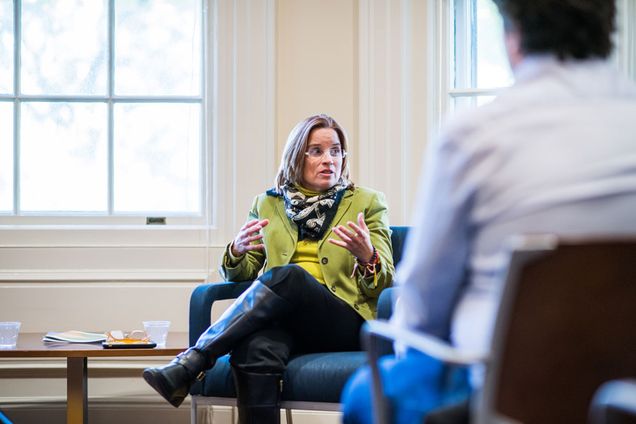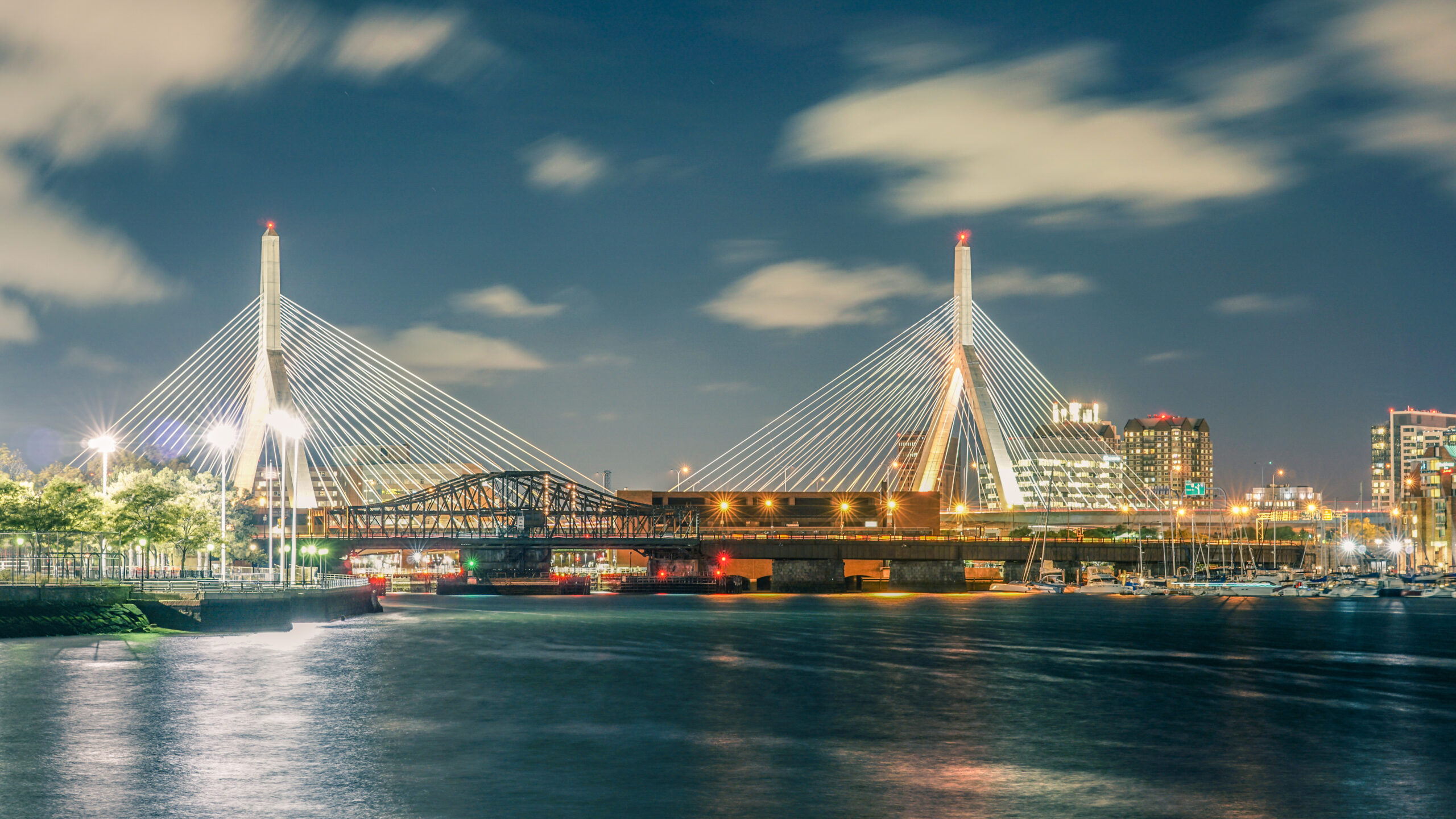Mayor Carmen Yulín Cruz
Urban Leadership in the Face of Disaster: a conversation with San Juan Mayor Carmen Yulín Cruz
By Carly Berke
On Thursday, October 25, the Initiative on Cities hosted Boston University alumna Carmen Yulín Cruz, the current Mayor of San Juan, Puerto Rico.
Cruz discussed urban leadership in the face of crisis, speaking directly of her experience in the aftermath of Hurricane Maria, which wreaked havoc across Puerto Rico in September 2017. Maria was a Category 4 hurricane with winds up to 155 miles per hour, ranking it the third-strongest storm to ever hit the United States. When Maria hit, Puerto Ricans were still reeling from the devastation of Hurricane Irma, which had arrived less than a month before Maria. 70% of Puerto Rico did not have access to electricity in the aftermath of Irma, and the devastation that Maria brought left 3.4 million Puerto Ricans without power. But the mismanaged relief effort that ensued kept Puerto Rico in the dark for nearly a year following the hurricane, and a humanitarian crisis quickly developed that has lasting consequences to this day.

Hurricane Maria was the worst environmental disaster Puerto Rico had faced in nearly a century, but it’s destruction was compounded by the incredibly botched relief effort that ensued in the following year. Of the 2,941 requests for federal assistance submitted to the Federal Emergency Management Fund, only 75 were approved. Washington also rejected Puerto Rico’s request for a $90 billion relief package, and FEMA and the federal government failed to quickly coordinate supplies and relief funds. As a result, Puerto Rico went months without access to electricity, and thus food and produce, clean drinking water, critical healthcare, and several other services. Cruz and her team worked relentlessly to keep generators running on diesel, repair infrastructure, feed the population and provide medical care to those in need. She spent $10 million on diesel, medicine, ice and food and cleaned up 283 million pounds of debris.
It was estimated that between 3,000-3,500 Puerto Ricans died as a result of the insufficient relief effort, a number that has been repeatedly denied by the current presidential administration. Even today, 60,000 homes in Puerto Rico are still living under tarp roofs, meaning that any kind of tropical storm could cause immense damage. Puerto Rico has seen a 70% increase in suicide attempts with a 35% increase in overall suicide rates.
As Cruz cited the gruesome statistics that comprise the humanitarian tragedy, she choked up several times. She lamented her inability to reach everyone, and she stressed that being a politician means knowing which decision will help the most amount of people. She urged the students in attendance to remain in touch with their humanity and human empathy – and to carry it with them through the rest of their careers.
A key item discussed was the role that climate change has played in the increase of natural disasters like Hurricane Maria. Although it quickly became a humanitarian crisis, Puerto Rico is also one of the most severe environmental disasters ever witnessed in the United States. The consequences of Maria and the implications for future disasters are numerous – for example, Cruz relayed the consequences of losing 50 million trees to Maria. Combined with a lack of urban planning, the absence of rooted tree structures now prevents the absorption of rainfall and has triggered urban flooding in San Juan on numerous occasions.
Cruz indicated that policy formation in San Juan is beginning to develop sustainable energy plans and switch the city’s energy source to solar. She wants urban planning to reflect environmentally sustainable policies. Devastation taught her that government is not about dividing, or spewing hate, it’s about enabling cities to become “democratic laboratories”.
“In San Juan, we don’t call it rebuilding, because it assumes what we had was functional,” said Cruz. “We call it transformation.”
Above all else, Mayor Cruz emphasized the fact that humanitarian crises must not fall victim to political divisiveness.
When a student made an inquiry into the role that racial discrimination might have played in the botched relief effort, as it did in the months and years following Hurricane Katrina, Cruz alleged that she hates to contemplate the possibility, and she insisted that disasters like Hurricane Maria are not valid disputes for partisan politics. She referenced the Saturday Night Live clip in which Donald Trump, portrayed by Alec Baldwin, speaks to Mayor Cruz via telephone, where he comes to learn for the first time that Puerto Ricans, as residents of a U.S. territory, are, in fact, American citizens.
“[Puerto Ricans] didn’t deserve help because they’re American citizens, they needed help because they’re human,” said Cruz. “It doesn’t matter if it was race, discrimination, bureaucracy, incompetence — it was wrong. People died.”
Cruz was voted one of the 100 Most Influential People in 2018 by TIME for her leadership and resolution in the aftermath of Hurricane Maria. She has worked tirelessly in the past year to lead the recovery effort in San Juan, and she urged students to help make their own cities “democratic laboratories” by utilizing their right to vote.
